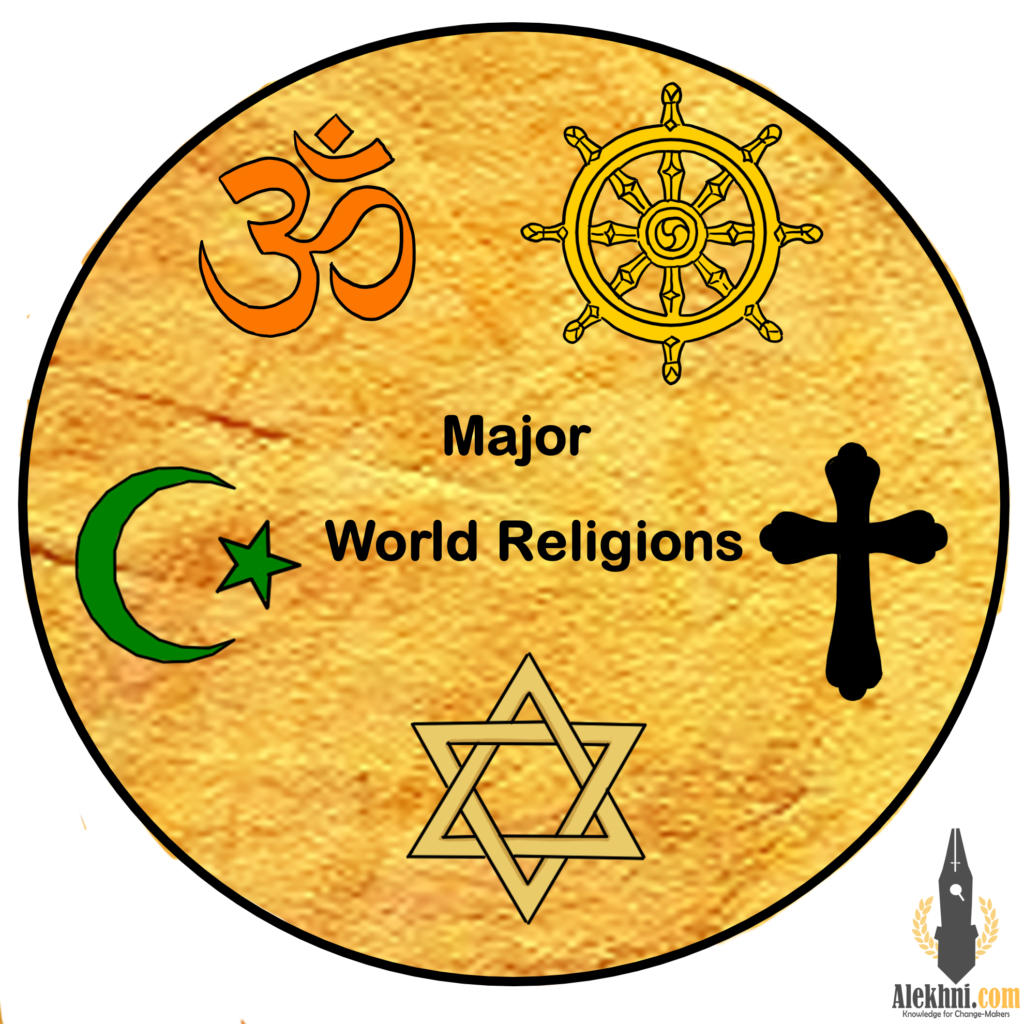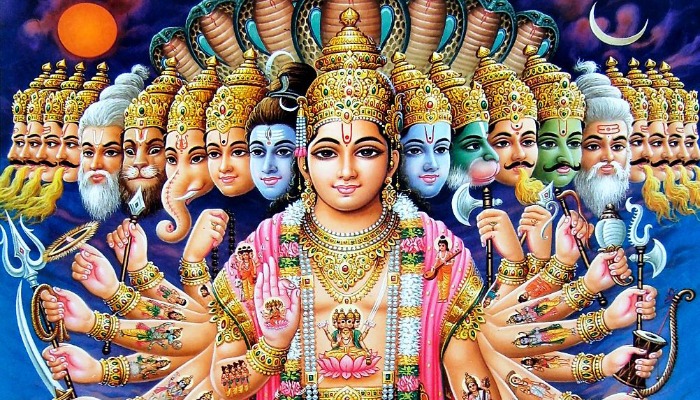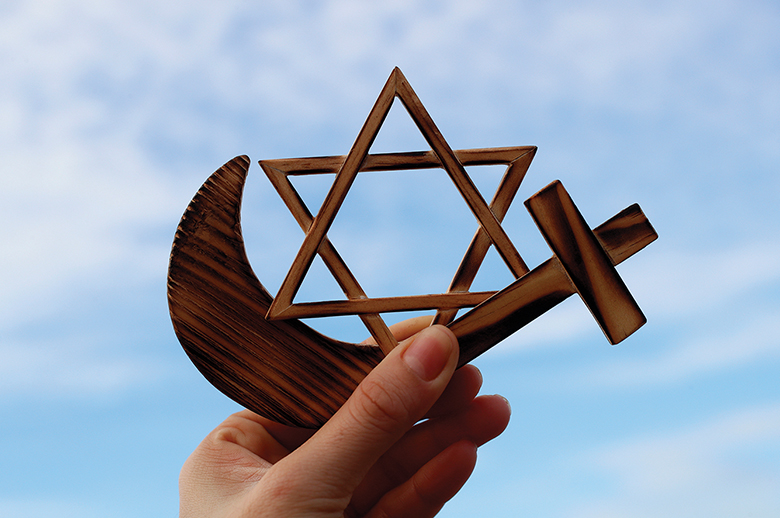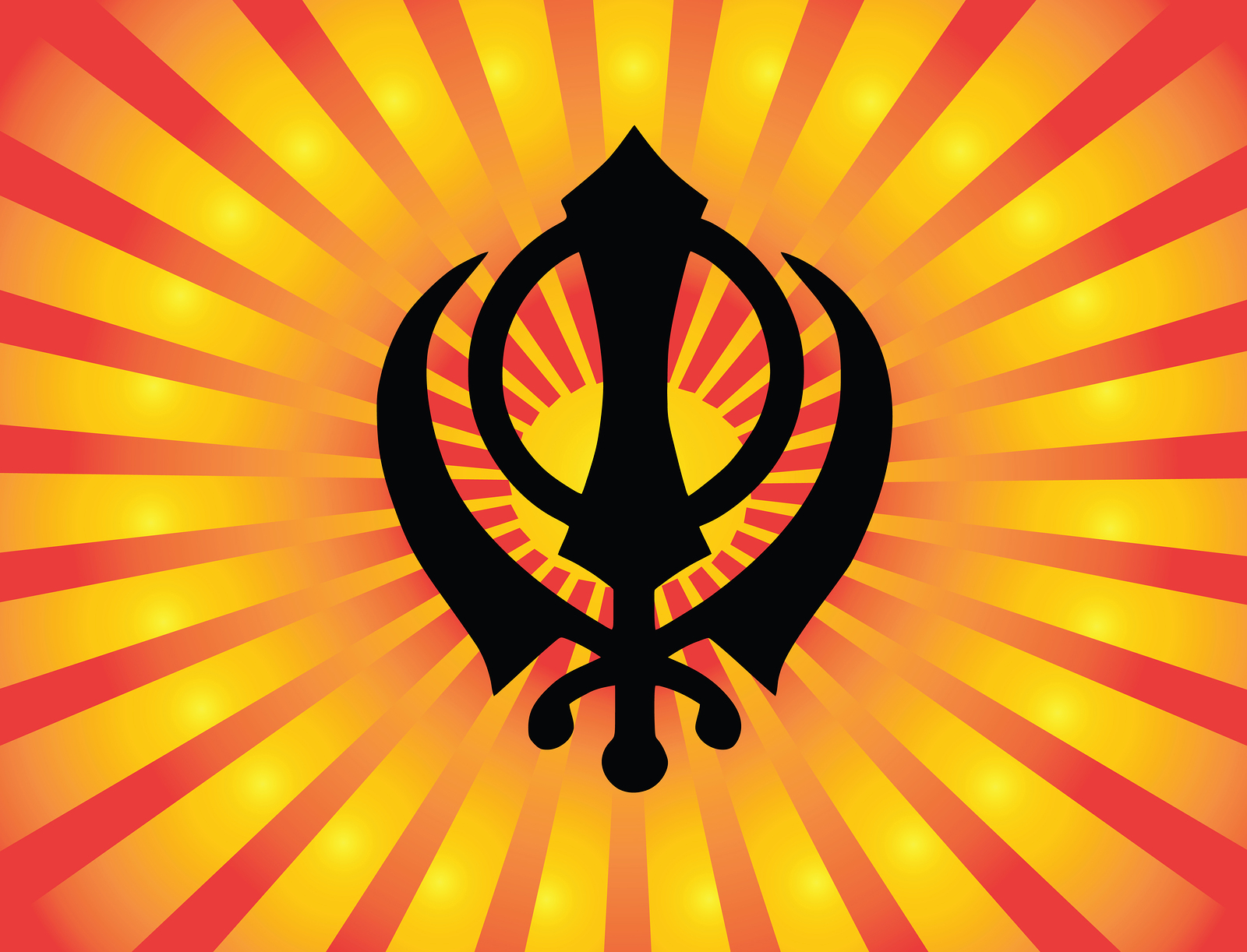The World's Major Religions and Belief Systems
Since the dawn of human civilization, our species has grappled with existential questions that transcend the physical world - our place in the universe, the meaning of life, and what happens after death. Across cultures and millennia, religions and spiritual traditions have emerged as a way for people to find answers, community, and purpose.
From the echoing chants of Buddhist monks to the ethereal atmosphere of cathedrals, from rites celebrating the cycles of nature to prayers directed at the divine - the world's major faiths have shaped our histories, inspired human  creativity, and oriented moral compasses. Yet they have also been instigators of unspeakable violence and oppression when twisted by the darker sides of human nature.
creativity, and oriented moral compasses. Yet they have also been instigators of unspeakable violence and oppression when twisted by the darker sides of human nature.
Behind this profound diversity, all religions represent the human search for truth, for significance greater than our temporary existence on this pale blue dot. An exploration of the world's major beliefs offers a window into the breathtaking complexity of our civilizations' spiritual landscapes, a quest that has consumed humanity's greatest thinkers and common folk alike for thousands of years.
Christianity
 With over 2.3 billion adherents, Christianity is the world's largest religion. Based on the life, teachings, death and resurrection of Jesus Christ, Christianity teaches that Jesus is the Son of God and the Messiah prophesied in the Hebrew Bible (the Christian Old Testament).
With over 2.3 billion adherents, Christianity is the world's largest religion. Based on the life, teachings, death and resurrection of Jesus Christ, Christianity teaches that Jesus is the Son of God and the Messiah prophesied in the Hebrew Bible (the Christian Old Testament).
The three largest branches of Christianity are:
Roman Catholicism (1.3 billion followers) - Headed by the Pope, recognizes the seven sacraments and the authority of the Church.
Protestantism (920 million followers) - Born out of the 16th century Reformation, rejects the authority of the Pope and follows Scripture as the supreme authority. Major Protestant denominations include Baptist, Methodist, Lutheran and Pentecostal.
Eastern Orthodox (230 million followers) - Established after the East-West Schism of 1054, recognizes the authority of patriarchs rather than the Pope. Major churches include Greek, Russian and Ukrainian Orthodox.
Islam
 With over 1.8 billion followers, Islam is the second-largest religion. It originated in the Arabian Peninsula in the 7th century CE with the revelations received by Prophet Muhammad, which were recorded in the Quran. The core Muslim belief is that there is one God (Allah) and Muhammad was God's final messenger and prophet.
With over 1.8 billion followers, Islam is the second-largest religion. It originated in the Arabian Peninsula in the 7th century CE with the revelations received by Prophet Muhammad, which were recorded in the Quran. The core Muslim belief is that there is one God (Allah) and Muhammad was God's final messenger and prophet.
The two largest denominations are:
Sunni Islam (85-90% of Muslims) - Regard the first four caliphs as rightful successors of Muhammad. Major centers include Saudi Arabia, Egypt, Pakistan and Indonesia.
Shia Islam (10-15% of Muslims) - Regard Ali, Muhammad's son-in-law, as his first legitimate successor. Major centers are Iran, Iraq, Azerbaijan and Lebanon.
Hinduism
 One of the oldest religions still practiced today, Hinduism encompasses a diverse range of philosophies and spiritual traditions that originated on the Indian subcontinent. An estimated 1.1 billion people identify as Hindu worldwide.
One of the oldest religions still practiced today, Hinduism encompasses a diverse range of philosophies and spiritual traditions that originated on the Indian subcontinent. An estimated 1.1 billion people identify as Hindu worldwide.
Some key principles and beliefs:
- Four central goals of life (Purusharthas) - dharma (ethics/duties), artha (prosperity), kama (desires/passions) and moksha (enlightenment/liberation)
- The ultimate reality called Brahman which exists in everything
- Belief in reincarnation and the law of karma governing cycles of rebirth
- Scriptural authority of the Vedas and Upanishads
- Worship of deities like Brahma, Vishnu, Shiva - different manifestations of Brahman
There is incredible diversity and no single set doctrine, with six major philosophical schools and numerous spiritual traditions within Hinduism.
Buddhism
 Founded in ancient India around the 5th century BCE, Buddhism is the main religion in much of East and Southeast Asia. With origins in the teachings of Siddhartha Gautama (the Buddha), it has approximately 535 million adherents worldwide.
Founded in ancient India around the 5th century BCE, Buddhism is the main religion in much of East and Southeast Asia. With origins in the teachings of Siddhartha Gautama (the Buddha), it has approximately 535 million adherents worldwide.
Core Buddhist concepts include:
- The Four Noble Truths - suffering exists, it arises from attachment, it can be overcome, and there is a path to overcome it
- The Eightfold Path - ethical guidelines towards the cessation of suffering
- Rejecting the notion of a creator God and denying concepts of soul/self
- Achieving enlightenment and ending the cycle of rebirth and suffering
- Philosophical schools like Theravada, Mahayana and Vajrayana Buddhism
Folk Religions
 An estimated 418 million people, mainly in China and parts of Asia and Africa, practice various folk or traditional ethnic religions. These are long-standing cultural traditions distinct from world religions like Buddhism, Christianity or Islam.
An estimated 418 million people, mainly in China and parts of Asia and Africa, practice various folk or traditional ethnic religions. These are long-standing cultural traditions distinct from world religions like Buddhism, Christianity or Islam.
Some examples include:
- Chinese folk religions (300 million followers) - Blend elements of Taoism, Buddhism, Confucianism and ancestor veneration rituals
- African traditional religions (100 million followers) - Varied animistic faiths involving worship of spirits/forces in nature
- Native American religions - Diverse spiritual beliefs and practices of indigenous North American peoples
Other Notable Religions

- Judaism (14.7 million followers) - One of the oldest monotheistic Abrahamic faiths based on the Torah

- Sikhism (27 million followers) - Indian religion founded in the 15th century on values of devotion, truthful living and equality
Non-Religious Perspectives Around 1.1 billion people worldwide are estimated to be non-religious or unaffiliated with any religious group. This includes:
- Atheists - Those who do not believe in any deities or spiritual entities
- Agnostics - Those who view the existence of God as unknown or inherently unknowable
- Secular/Nonreligious people - Those who live a life based on philosophies and ethical frameworks rooted in reason and without spiritual components
While the world's religions and belief systems are extraordinarily diverse, they all have helped shape human civilization, cultures and worldviews across thousands of years of history. As our world becomes more globalized, greater interfaith understanding and dialogue becomes increasingly vital.
Conclusion
The winding paths of humanity's multitude of spiritual traditions have profoundly influenced the human story on this planet we all share. From the birth of civilization to our modern, interconnected world, religions and their interpretations have been inseparable from our timelines of war and peace, oppression and liberation, ignorance and enlightenment.
As we stand at the crossroads of globalization, with cultures intermingling and lines blurring between faiths, it is evident that compassionate understanding must be our guiding star. Whether one follows a world religion or walks the secular path, all spiritual and non-spiritual perspectives share the fundamental human truth - we must treat one another and this world with reverence.
Perhaps our diversity of beliefs was never meant to divide, but to drive us to realize a higher wisdom - our humanity's oneness in the face of the great mysteries of existence. In recognizing and honoring the yearning for transcendence woven through our beliefs, we may find more that unites than divides the human family across this wondrous world.




































